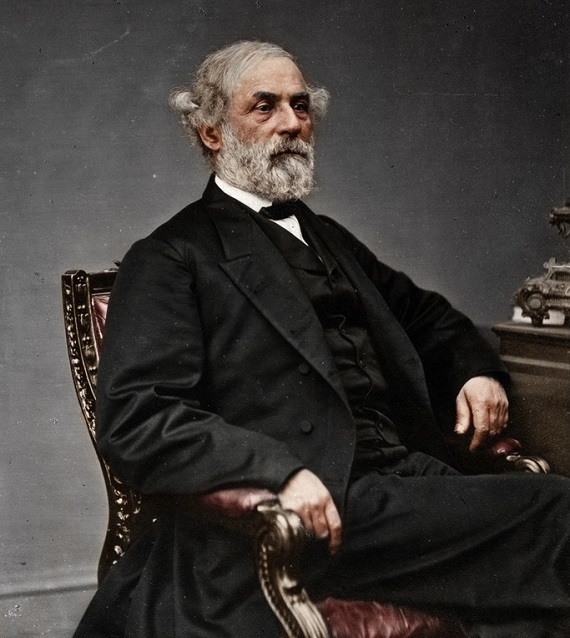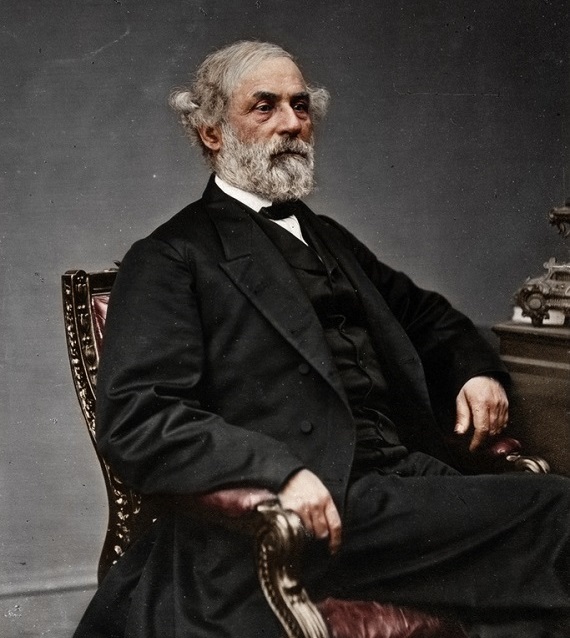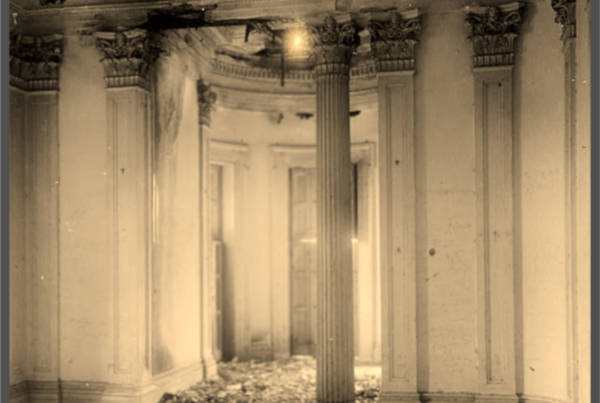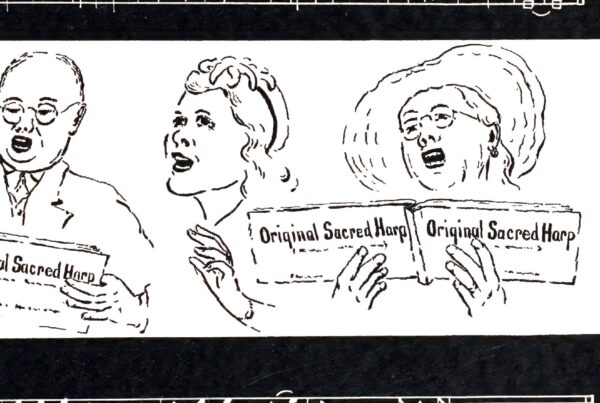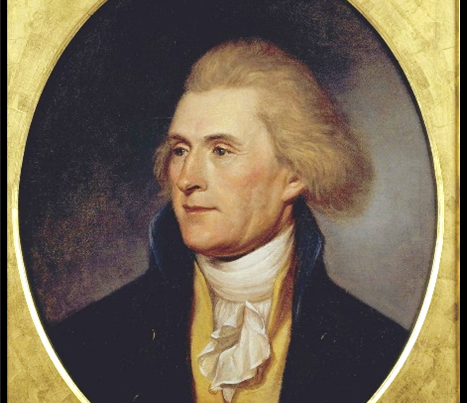“And of all the officers or men whom I ever knew he came (save one other alone) the nearest in likeness to that classical ideal Chevalier Bayard…And if these, our modern, commercial, mechanical, utilitarian ages, ever did develop a few of these types of male chivalric virtues, which we attribute solely to those ‘ages of faith,’ Robert E. Lee was one of the highest and finest models.”[1]
Robert E. Lee spent two portions of his life as the head of an institution of higher education. The first was his tenure as Superintendent of the United States Military Academy at West Point, New York from 1 September, 1852 to 24 March, 1855.[2] The second was his five-year service as President of Washington College, which is now Washington and Lee University.
Lee had no desire to become the superintendent at West Point. The post was underfunded and subject to much political wrangling for which Lee had no taste. Many officers assigned as instructors had little desire to be there, and were consequently slow to report when ordered to and quick to leave as soon as the opportunity presented itself. They were often detached for other duty during the middle of the academic year, leaving the superintendent in the uncomfortable position of trying to stall their departure long enough to ensure a replacement had arrived before they left so that none of the students’ courses were neglected.[3] Lee requested someone else be appointed superintendent. The request was denied, and Lee did his duty.[4]As in all things, Superintendent Lee was precise and frugal. He did all that he could to improve West Point by supplying its deficiencies in equipment, modernizing its curriculum, and tightening its disciplinary standards.[5]
Unlike the post at West Point, Lee eagerly accepted the Presidency of Washington College, despite the offered salary being only $1,500 per annum, the college being impoverished, and the workload immense.[6] Lee chose Washington College, and chose it happily, because he believed that God was calling him there.[7] This was his opportunity to “do something more for the glory of God.”[8] The General loved the college and the students it served. Lee’s desire to educate the South’s young men appears to have gone back as far as 1863.[9] The college’s work was so important to him that he loaned $6,000 to the institution, despite the leanness of his own finances.[10] Lee was a habitually generous man. In the last year of his life, he gave $100 to educate the orphans of soldiers and $100 to Washington College’s YMCA, in addition to “smaller sums to a number of similar objects”.[11] Lee’s yearly salary at the time was $3,000.[12] Given his previously mentioned donation of at least $55 to Reverend Pendleton’s salary, it is evident that the General gave away, at minimum, a tenth of his annual income in 1870.[13] Lee’s arrival at the college in 1865 demonstrated the humility which was a hallmark of his life. He rode into Lexington unostentatiously, unaccompanied, and entirely unexpected by the inhabitants.[14] In discussion with the sculptor, Edward Valentine, who lamented his own fallen fortunes, Lee replied with a quotation from the Meditations of Marcus Aurelius: “Misfortune nobly borne is good fortune.”[15] On one occasion, Lee called a student to his office one day to inform him that, if his grades did not improve, he would fail. The student responded: “But General, you failed.” Lee did not explode in fury, nor cast the boy out of the room. Instead, he looked at the young man sadly and quietly replied: “I hope that you may be more fortunate than I.”[16]
One point of likeness between the Lee of West Point and the Lee of Washington College was his approach to education. Of course, as a military academy, West Point possessed a long and comprehensive written code of conduct, and much of Lee’s success as superintendent was due to his faithful enforcement of that code through strict discipline.[17] He might have done something similar at Washington College, but instead chose to eschew printed rules in favour of an honour code in which the students held themselves, and each other, accountable. He described it thus: “We have but one rule here, and it is that every student must be a gentleman.”[18] This practice was not one Lee implemented fully at West Point, but he had attempted to practice it as much as possible. When one cadet was on the verge of being court-martialed, his entire class pledged not to commit the offense of which he was guilty, provided he was shown clemency. With the approval of the Secretary of War, Lee accepted their pledge, and the cadets proved true to their word.[19]
The “boys” at Washington College proved just as worthy of Lee’s trust. One day, a lad of excellent academic standing was called into his office for skipping classes in order to go ice-skating. The President gently reminded him how expensive it was for his parents to send him to college, and how straitened their finances were in the lean years following the devastation of the war. The student broke into tears and promised that Lee would never have to call him to the president’s office for discipline again. He kept his promise.[20] Indolent students Lee admonished thus: “I have a way of estimating young men which does not often fail me. I cannot note the conduct of any one, for even a brief period, without finding out what sort of a mother he had. You all honor your mothers; need I tell you that I know you will have that honor in reverent keeping?”[21]
When dealing with particularly troublesome charges, Lee would often write letters to their parents. The third official letter he wrote as superintendent of West Point was to the father of one of the cadets, detailing the list of demerits the boy had incurred and expressing Lee’s hope that his sense of “filial respect” would prevent him from incurring more.[22] Lee’s West Point letters are full of such appeals; he could hardly act in loco parentis for the lads in his charge if their parents refused to chastise them for indolence.[23] Lee took the same approach at Washington College, writing to one man that his son was in good health due to the student’s great care not to over-exert himself by studying too hard.[24]
Lee was always a just disciplinarian, both at the Point and at the College. The punishment always fit the crime. Severe violations met with severe punishments, including expulsion. He did not relish punishing his charges, and explained his theory of disciplining the recalcitrant to his superior: “when it is necessary, true kindness requires it should be applied with a firm hand, and not converted into a reward.”[25] When his own nephew was among a group caught committing multiple serious violations, Lee did not spare the rod on account of blood. All of the guilty cadets were punished severely.[26] Repentance was met with mercy. If a cadet confessed his wrongdoing, Lee considered that a point in his favour, and he thought that regulations should be crystal clear in defining self-incrimination.[27] Tattling Lee had no tolerance for. Once, when out riding with Robert Jr., the Superintendent spotted three cadets who had travelled far outside the boundary allowed them by regulations. They leapt over a fence by the roadside and disappeared. Lee and Rob (who was not a student at the time) rode on for a minute before the elder Lee turned to his son and asked him if he knew the miscreants in question. Then he said: “But no; if you did, don’t say so. I wish boys would do what is right, it would be so much easier for all parties.”[28] The cadets respected him and appreciated his manner of doing justice in mercy. Eventual Union army commander and U.S. Secretary of War, John M. Schofield, spent his junior and senior years at West Point under Lee’s tutelage. Writing towards the twilight of his life, Schofield declared: “He was the personification of dignity, justice and kindness, and was respected and admired as the ideal of a commanding officer.”[29]
At Washington College, as at West Point, Lee quietly attempted to encourage virtue rather than merely repressing vice. He remembered, however, that bad company corrupts good morals. Students who were habitual drunkards were expelled, though he always made certain that reprimands and punishments were warranted. Guilt had to be proven beyond doubt; hearsay was not evidence.[30] Pranks he tolerated, even laughed at, so long as there was no harm done and no malice intended. During one particularly bitter winter, John M. Graham, a student from Tennessee, discovered that someone had been raiding his wood-pile rather than cutting his own fuel. In order to catch the culprit, the student found a hollow log and stuffed it with gunpowder. Later that day, there came a loud bang from one of the classrooms; the stove had been blown apart and the room set on fire. No one was hurt, and no real damage was done (beyond the ruined stove), but the event caused a sensation, and the following morning Lee took the podium during chapel to ask anyone who knew anything about the affair to come to his office. Graham obediently presented himself to Lee later that day. It turned out that one of the janitors, whose job it was to provide the classrooms and offices with wood for their stoves, had taken some from the student’s woodpile to save himself a frigid walk in the snow. Lee praised Graham’s plan, broke into hearty laughter, and told the boy he had used too much powder. “Next time,” said Lee, “use less powder.”[31]
A deep and abiding concern for his charges’ well-being characterized both of Lee’s stints as an educator. His attentiveness to the personal troubles of the cadets at West Point caused Michael Korda to describe him as “fussing like a mother hen.”[32] Two of his biographers concurred in then-Secretary-of-War Jefferson Davis’s assessment that Lee’s sympathy and worry for the welfare of the cadets was what began turning his hair gray.[33] Lee’s time at Washington College was only different in that his concern took on an explicitly evangelical aspect.[34] One of the first things Lee proposed as president was the construction of a new chapel.[35] He once remarked that: “If I could only know that all the young men in the college were good Christians, I should have nothing more to desire. I dread the thought of any student going away from the college without becoming a sincere Christian.”[36] He ended compulsory chapel attendance because salvific faith in Christ could not be compelled, but he also made every effort to ensure the students went to chapel, and did so because they possessed a genuine desire to worship the Almighty. Leading by example, he was always in attendance at chapel, seated in the second pew from the front.[37] I had the privilege of sitting in that pew myself during a visit to Lexington when researching my Master’s Thesis. A plaque marks the pew.[38]
Lee believed himself responsible before God for the spiritual, moral, and physical welfare of his students.[39] He knew all of them by name and referred to each as “mister” when addressing them. In private he fondly called them “my boys.”[40] At West Point Lee took great pains to make allowances for the cadets who were ill, weak, homesick, struggling, or dealing with family troubles.[41] To the father of a cadet who would otherwise have to be dismissed, Lee wrote: “He is a youth of such fine feelings and good character that I should not like to subject him to the mortification of failure, to which he might give more value than it deserves. For I consider the character of no man affected by a want of success, provided he has made an honest effort to succeed.”[42] Lee’s care only increased at Washington College.[43] His remarks to one frustrated professor summarize the compassion and thoughtfulness he demonstrated to the students who, through no lack of effort, required more attention than others: “Always observe the stage-driver’s rule…Always look after the poor horses.”[44] When one of the college students died via accidental drowning, Lee wrote to the boy’s mother: “I beg to be permitted to sympathize in your great sorrow…May God in His mercy support you under this grievous trial, and give you that peace which passeth understanding, so nothing in this world can diminish or destroy it.”[45]
Despite his desire for the salvation of all his pupils, Lee was an insightful man who understood the church-going habits of young men. One day, Dr. Pendleton, Lexington’s Episcopal rector, lamented to the President that many students of that denomination had taken to attending the Presbyterian Church of Dr. Pratt. Pendleton attributed their attraction to Pratt’s superior oratory. The clergyman apparently was unaware of something Lee knew well: Dr. Pratt had a beautiful daughter named Grace, whom the students of Washington College much admired. Probably with a twinkle in his eye, Lee told Pendleton: “I rather think that the attraction is not so much Doctor Pratt’s eloquence as it is Doctor Pratt’s Grace.”[46] Regardless of his jokes, Lee was sincere in his evangelical desires and painstaking in his labours toward that end. He helped to organize the Y.M.C.A. chapter at the college, ensured that students living in town were boarded with Christian families, and made known his displeasure for anything which prevented the students from attending Sunday morning worship services.[47]
Lee possessed foresight and common sense. He knew that rebuilding the South’s shattered economy would be difficult, and he worked to expand the college’s curriculum to include not only the classic liberal arts education, but also more practical subjects, such as chemistry, engineering, agriculture, commerce, applied chemistry, printing, and journalism.[48] He valued education highly for every Southerner, both white and black.[49] Lee wrote in 1866: “The thorough education of all classes of the people is most efficacious means, in my opinion, of promoting the prosperity of the South.”[50] Lee’s efforts proved successful. Washington College became a juggernaut in Southern education, and the engineering school was essential to the development of the Southern steel industry.[51]
Lee wanted peace and harmony to be restored, and he worked tirelessly both in labour and example, to that make a reality. By his example of quiet obedience and patient suffering, he did much to bind up the wounds of the war.[52] As he wrote to Josiah Tatnall:
“I believe it to be the duty of every one to unite in the restoration of the country, and the reestablishment of peace and harmony…It appears to me that the allayment of passion, the dissipation of prejudice, and the restoration of reason, will alone enable the people of the country to acquire a true knowledge and form a correct judgment of the events of the past four years…I have too exalted an opinion of the American people to believe that they will consent to injustice; and it is only necessary, in my opinion, that truth should be known, for the rights of every one to be secured.”[53]
When one of the professors criticized Ulysses Grant in the harshest possible language, Lee’s response was instant: “Sir, if you dare presume to speak anything disrespectful of General Grant in my presence again, either you or I will sever his connection with this university.”[54] Lee’s standards of conduct applied to the students as well. He worked diligently to prevent misbehaviour at the outset and to prevent clashes of any kind between the students and those intent upon stirring up trouble, which may sometimes have included the commanders of Lexington’s Federal garrison.[55] Once in 1866, Lee had to intervene to prevent a mob of farmers from the surrounding countryside from murdering a horse thief (and possibly the aged town jailor, Thomas L. Perry, as well).[56]
Shortly before the General’s death, he paid a farewell visit to some friends in Northern Virginia. While there, a young woman brought her baby to be blessed by him. What advice, asked she, did the General have for her son? Lee held the lad in his arms for a few moments, looking at him, then raised his face to the young mother. He told her: “Teach him he must deny himself.”[57]
Given what we’ve learned about Lee’s behavior and character over the course of these four articles, let’s take a moment to look at the state of things in America today. According to Pew Research Center, about 70% of Americans identify as Christians of some kind or other.[58] Per the U.S. Census Bureau, the population of the United States is about 330,679,000 people.[59] That means there are 231,475,300 self-identified Christians in the U.S. today. Imagine if a quarter of those people (57,868,825), or even one-tenth of those people (23,147,530) possessed character like Robert E. Lee’s. Would America be in its presently miserable condition? Would fraud, graft, and corruption be commonplace and accepted as a natural part of politics? Would there be new sexual assault and sexual abuse scandals popping up from schools across the country on a seemingly weekly basis? Would our popular culture so be profligate and lascivious as to make past generations of hedonists blush and put Bacchus himself to shame? Would we have epidemic levels of single motherhood, absentee fathers, deadbeat dads, drug and alcohol addiction, rampant divorce, obscene levels of private and public debt, and multiple generations of children raised in broken homes?
To answer these questions is to insult the reader’s intelligence. Suffice it to say that Christians should not just admire Robert E. Lee, but should also strive emulate him. Christians of any age and time will do well to follow the example of the Marble Man.[60]
[1]Anderson, Charles. A Paper Read Before the Cincinnati Society of Ex-Army and Navy Officers, January 3d, 1884 (Cincinnati, OH: P.G. Thompson, 1884), 24. It should be noted that Anderson knew Lee in Texas before the war, was a staunch Unionist who served as Colonel of the 93rd Ohio Infantry, and was brother to Major Robert Anderson of Fort Sumter fame. Anderson was not the only pre-war acquaintance to praise Lee despite having been his enemy. Union Major General Erasmus D. Keyes wrote of Lee: “I doubt if he ever excited envy in any man. All his accomplishments and alluring virtues appeared natural in him, and he was free from the anxiety, distrust and awkwardness that attend a sense of inferiority, unfriendly discipline and censure.” See Keyes, Fifty Years’ Observation of Men and Events, Civil and Military (New York: Charles Scribner’s Sons, 1884), 205.
[2]The Daily Correspondence of Robert E. Lee, Superintendent, USMA, 1852-1855, ed. Charles R. Bowery Jr. and Brian D. Hankinson. (West Point, N.Y.: United States Military Academy, 2003), 1, 288.
[3]Freeman, Douglas S. R.E. Lee,Volume I (New York: Charles Scribner’s Sons, 1934),317-324. All
R.E. Lee citations refer to the online transcription of the first edition which can be found for free at the following
link: https://penelope.uchicago.edu/Thayer/E/Gazetteer/People/Robert_E_Lee/FREREL/home.html
[4]Freeman, R.E. Lee, Volume IV, 317-318.
[5]Freeman, R.E. Lee, Volume I, 323-328, 331-338. In the third task especially, Lee was much aided from 1853 onwards by Franklin Pierce’s Secretary of War, Jefferson Davis.
[6]Freeman, R.E. Lee, Vol IV., 215-225. The college’s library and science equipment had been broken up or stolen by Union troops. See loc. cit., 223-224.
[7]Korda, Michael. Clouds of Glory: The Life and Legend of Robert E. Lee, (New York: Harper Perennial, 2015), 671-693, and Cox, R. David. The Religious Life of Robert E. Lee, (Grand Rapids: Eerdmans, 2017), 197-210, and Freeman, R.E. Lee Volume IV, 215-18.
[8]Cox, Religious Life, 209.
[9]Freeman, R.E. Lee, Volume II, 539-540.
[10]Freeman, R.E. Lee, Volume IV, 248.
[11]Jones, J. William. Personal Reminiscences, Anecdotes, and Letters of Gen. Robert E. Lee (New York: D. Appleton & Company, 1875), 432-433.
[12]Freeman, R.E. Lee, Volume IV, 267. It had originally been $1,500, but the Board of Trustees doubled it without Lee’s knowledge. See loc. cit., and op. cit., 215.
[13]See Robert E. Lee: The Believer, paragraph 13. https://www.abbevilleinstitute.org/blog/robert-e-lee-the-believer/
[14]Preston, Margaret J. “General Lee After the War.” The Century Illustrated Monthly Magazine, 38 (May-Oct. 1889), 274.
[15]Freeman, R.E. Lee, Volume IV, 464.
[16]Crocker, H.W. Robert E. Lee on Leadership (New York: Three Rivers Press, 1999), 175.
[17]Korda, Clouds of Glory 172-187, Freeman, R.E. Lee, Volume I, 317-359.
[18]Cox, Religious Life, 222-223, and Freeman, R.E. Lee,Volume IV, 278.
[19]Freeman, R.E. Lee,Volume I, 333-337. For a touching and characteristic story involving Lee, Archibald Gracie, and Wharton Green, see loc. cit., 337-338 and op. cit., Volume IV, 531-532.
[20]Freeman, R.E. Lee,Volume IV, 279-280.
[21]Preston, “General Lee After the War” Century Illustrated, 274.
[22]Lee, Daily Correspondence, 2.
[23]Ibid., 9-11, 18-24, 28, 31-34, 47, 49, 74.
[24]Freeman, R.E. Lee, Volume IV, 275-298.
[25]Freeman, R.E. Lee, Volume I, 345.
[26]Freeman, R.E. Lee, Volume I, 332-334.
[27]Freeman, R.E. Lee, Volume I, 345-346.
[28]Lee Jr., Robert E., Capt. Recollections and Letters of General Robert E. Lee (New York: Doubleday, Page & Company, 1904), 12-13.
[29]Schofield, John M., Lieut. Gen. Forty-six Years in the Army, (New York: The Century Co., 1897), 15.
[30]Freeman, R.E. Lee, Volume IV, 281-282.
[31]Riley, Franklin L. General Robert E. Lee After Appomattox (New York: The MacMillan Co., 1922), 70-72.
[32]Korda, Clouds of Glory, 178.
[33]Freeman, R.E. Lee,Volume I, 339-340, Korda, Clouds of Glory, 176.
[34]Freeman, R.E. Lee,Volume IV, 245-432, Cox, Religious Life, 214-224.
[35]Cox, Religious Life, 223-224.
[36]Riley, Lee After Appomattox, 25.
[37]Freeman, R.E. Lee,Vol. IV, 275-298, 420-432.
[38]The tour-guide was kind enough to take a photo to mark the event. As I look rather shabby and my double chin is prominent, I have elected not to include the photo in the article.
[39]Freeman, R.E. Lee,Volume IV, 276-277.
[40]Freeman, R.E. Lee,Volume IV, 275-298.
[41]Lee, Daily Correspondence, 25, 32-33, Korda, Clouds of Glory, 172-187, Cox, Religious Life, 103-108, 113, Freeman, R.E. Lee,Volume I,317-359.
[42]Lee to R.B. Campbell, 24 May 1853. Daily Correspondence, 90.
[43]Korda, Clouds of Glory, 681-689, Cox, Religious Life, 209, 215, Freeman, R.E. Lee,Volume I, 340-341, Volume IV, 245-432.
[44]Freeman, R.E. Lee,Volume IV, 285.
[45]Jones, Personal Reminiscences, 432-433. General Lee was clearly referencing Philippians 4:7.
[46]Riley, Lee After Appomattox, 62.
[47]Freeman, R.E. Lee, Volume IV, 282.
[48]Freeman, R.E. Lee, Volume IV, 421-432.
[49]Jones, Personal Reminiscences, 269.
[50]Lee to Maj. Gen. John B. Gordon, 30 December, 1867. Jones, Personal Reminiscences, 97.
[51]Freeman, 430-432.
[52]Freeman, R.E. Lee, Volume IV., 217-222, 320-332.
[53]Jones, Personal Reminiscences, 205-206.
[54]Bradford, Gamaliel. Lee the American (Boston & New York: Houghton Mifflin Company, 1923), 226.
[55]Freeman, R.E. Lee, IV, 283-285.
[56]Riley, Lee After Appomattox, 28-30. For some other ugly incidents Lee tried to prevent or helped to resolve, see Freeman, R.E. Lee, Volume IV, 344-370.
[57]Packard, Joseph. Recollections of a Long Life (Washington, D.C.: B.S. Adams, 1902), 158. Compare to Christ’s command in Matthew 16:24 and Luke 9:23.
[58]https://www.pewforum.org/religious-landscape-study/
[59]https://www.census.gov/popclock/
[60]If you’re interested in reading more about the General, D.S. Freeman’s 4-volume biography can be found online for free: https://penelope.uchicago.edu/Thayer/E/Gazetteer/People/Robert_E_Lee/FREREL/home.html Most of the primary sources and some of the secondary sources (like Lee’s Lieutenants) cited throughout these articles have been digitized, and can be read for free in their entirety via the Internet Archive at www.archive.org The digitized collections accessible through the University of Pennsylvania’s Online Books Library are also exceedingly useful: https://onlinebooks.library.upenn.edu/ The Lee Family Archive is another wonderful resource for primary source documents: https://leefamilyarchive.org/


